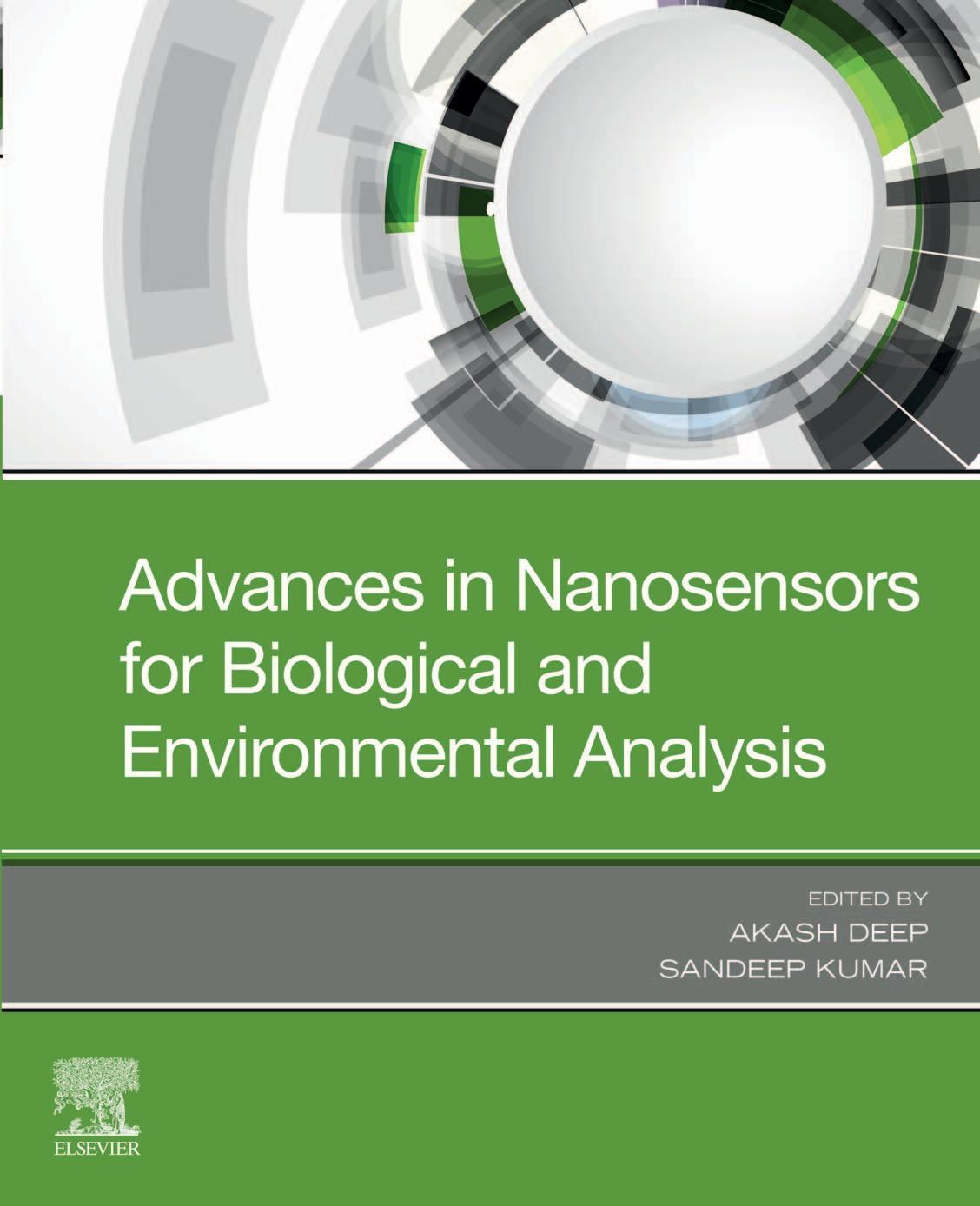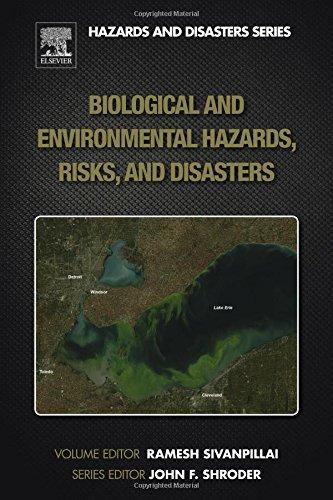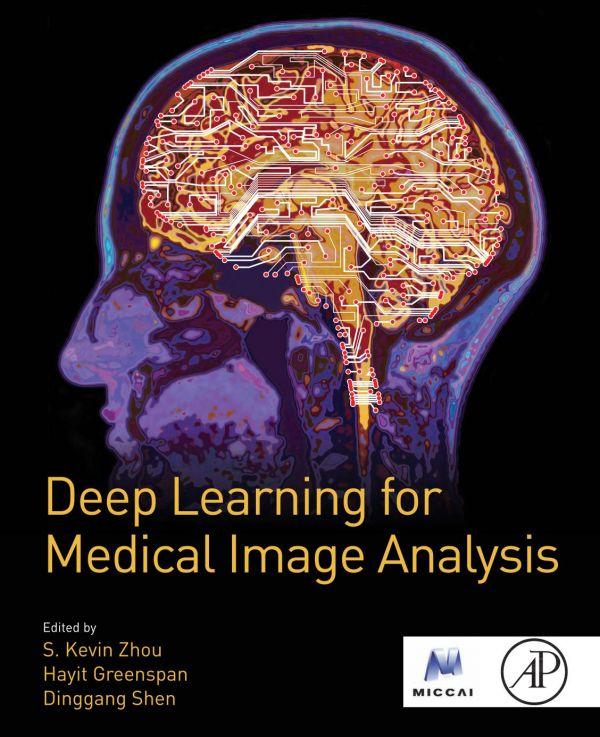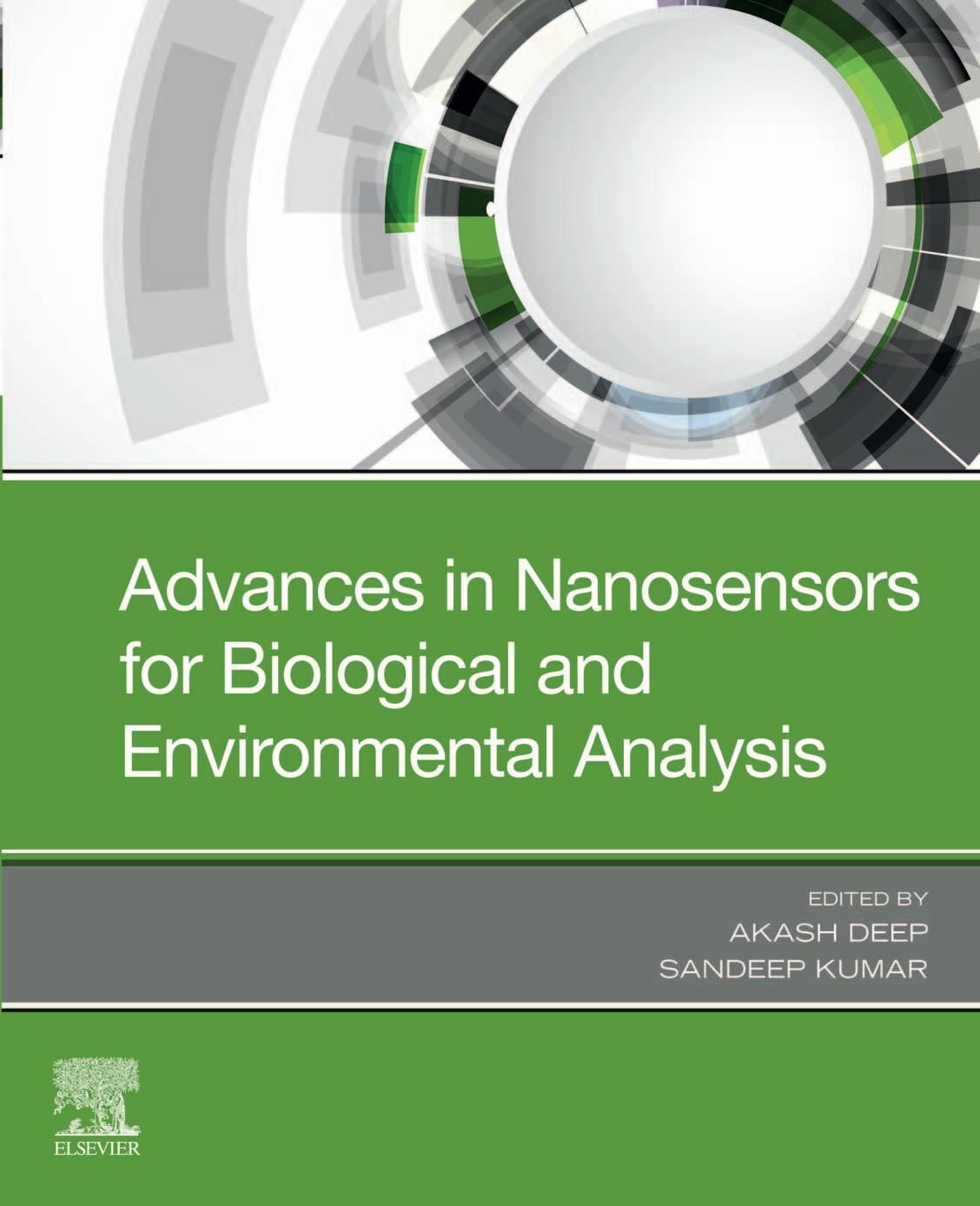Carbon-BasedNanomaterialsforthe DevelopmentofSensitiveNanosensor Platforms
MONIKANEHRA • NEERAJDILBAGHI • ASHRAFALYHASSAN • SANDEEPKUMAR
INTRODUCTION
Carbonisoneofthemostcommonlyfoundelementsinnatureanditsunderstandinghasreached newlevels,frommacroscopictonanoscale,with continuousadvancementinnanotechnology. Thenanostructuresofcarbonintheirdifferent formshavebeenappliedindiverse fieldssuchas fieldemissiondisplays,nanoelectronics,energy conversionandstorage,biologicalandchemical sensors,andtheranostics.Inthe21stcentury, owingtotheirextraordinarypropertiesinterms ofstructuralperfection,carbonnanomaterials haveinfactledgeneralsciencetomanyadvanced avenues.Thestructuralpropertiesofcarbonmaterialshaveinspiredthesynthesisofnovelnanomaterialswithsimilarsymmetriesandstructures,e.g., fullerenes,nanotubes,nanodots,andgraphene. Carbonatomshavetheabilitytoformrobust mutualcovalentbondsindifferenthybridization statessuchas sp, sp2,and sp3.Carbonatomsalso interactwithnonmetallicelementsleadingto theformationofawiderangeofstructuresfrom smallmoleculestolongchains.Themajorclassificationofcarbonmaterials(suchascarbon,diamond,andgraphite)isbasedonthewayof interconnectionbetweencarbonatoms,e.g.,tetrahedral sp3 atomconfigurationincaseofdiamond andhexagonal sp2 carbonatomconfigurationin caseofgraphenemonolayers.However,mixed statesalsoexistandlaythebasisfornanocrystallinediamond,diamond-likecarbon,and
amorphouscarbon.Thecarbonnanoallotropes belongingtosamegrouporsamearrangement ofcarbonatomshavecommonproperties;however,therearesignificantdifferencesbecauseof theirdifferentsizesandshapes.
Asummaryofcarbonnanomaterialswith differentmorphologiesbutuniquechemical propertiesisshownin Fig.1.1 (Yanetal.,2016). Theycanbeclassi fiedaccordingtotheirstructural dimensionalityas,e.g.,(1)0Dnanostructures (fullerenes,carbondots,nanodiamonds,etc.), (2)1Dnanostructures(carbonnanotubes [CNTs]/carbonnanofibers[CNFs],etc.),and(3) 2Dnanostructures(graphene,graphenenanoribbons,etc.).Diamond,ametastablestateofcarbon,consistsofa3Dcubiclatticewith3.57Å latticeconstantalongaC Cbondlengthof 1.54Å(Squeetal.,2006).Incontrast,graphite possessesa2DlayeredstructurehavingaC C bondlengthof1.42Å(Baughmanetal.,1987). Ingraphene,thelayersaresingleatomthickand interactthroughvanderWaalsforceshaving 3.35Åinterlayerspacing.Graphitecorresponds tothemostthermodynamicallystableformofcarbonatroomtemperature.Grapheneiscommonly referredasa2Dbuildingblockof sp2 hybridized carbonaceousnanomaterials;itcanberolled and/ordistortedinordertoformCNTsandfullerenes.The firstsuccessfullysynthesizedcarbon nanomaterialwasC60 (alsoknownasbuckminsterfullerene),throughlaserablationofgraphite

FIG.1.1 Broadfamilyofcarbonnanomaterials.(AdaptedfromYan,Q.L.,Gozin,M.,Zhao,F.Q., Cohen,A.,Pang,S.P.,2016.Nanoscale8,4799 4851.ReprintedwithpermissionfromRSC.)
underhelium flow(Krotoetal.,1985).However, somereportsalsoexistonthedevelopmentof even-numberedcarbonaceousclustersbeforethe developmentofC60,buttheseclusterswereunsuitableforcharacterizationbecauseoftheirlarge sizedistributions(Rohlfingetal.,1984).Fullerenesareviewedasthe0Dformofgraphiticcarbon andalsoreferredasirregularsheetsofgraphene thatarecurledintheformofasphereviapentagonsincorporationinthestructure.Furthermore, CNTswereisolatedasanoffshootduringthesynthesisoffullerene.Theelongationoffullerenein onedimensionassumesthestructureofCNTs withhighaspectratios(e.g.,from102 to107).
Differentsynthesismethodshavebeendevelopedfortheproductionofbothsingle-walled CNTs(SWCNTs)andmultiwalledCNTs (MWCNTs).Theseincludearcdischarge(Arora andSharma,2014),chemicalvapordeposition (CVD)(Kumaretal.,2017a),andhigh-pressure carbonmonoxidemethod(Liuetal.,2011a). Theinitialdevelopmentofgraphenewasdone byitsgrowthoninsulatingsubstratesbyGeim andcoworkers(Novoselovetal.,2004).Inthe currentperspective,graphenecanbereferredas themotherofallgraphiticcarbon.Graphenehas furtherbeeninvestigatedasmonolayertoafewlayerednanomaterialdependingonthethickness requirementinaparticularapplication(Liuetal., 2018).
Carbonnanomaterialscanpossiblycoverthe characteristicsofdifferentsubstancesontheearth,
suchashardesttosoftestmaterials,insulatorsto semiconductorsandfurthertosuperconductors, andfullylight-absorbingtocompletelytransparentmaterials.Thesuperiorityofcarbonnanomaterialsisbasicallyduetotheirhardness, radiationcharacteristics,opticalproperties,electricconductivity,chemicalresistance,heatresistance,electricinsulation,andsurface/interface propertiesincomparisontomanyothermaterials.
CARBON-BASEDNANOMATERIALSFOR NANOSENSORDEVELOPMENT
Nanosensorsarebecomingacrucialpartofmodernlifestyle,particularlyinhealthcareduetothe demandofpoint-of-caredevices,personalized medicine,andcheaperandreliablediagnostic tools.Carbonnanomaterialshavemotivatedresearcherstoimplementthemasidealtransductionmaterialsmainlybecauseoftheirgeometry, fastelectrontransferkinetics,widepotentialwindow,lowresidualcurrent, fluorescentproperties, andreadilyrenewablesurfaces(Jariwalaetal., 2013).Voluminousresearcheffortshavebeen dedicatedtoemploycarbonnanomaterialsin thedevelopmentofhighlysensitiveandselective nanosensors.
FabricationofSensingPlatforms
Thedevicearchitectureofelectrochemicalnanosensorscanbebroadlyclassi fiedintotwomain categories:(1)theconventionalthree-electrode
Another random document with no related content on Scribd:
walked out into the radiance of the sun itself.
He was uncertain how long he stood there, his sightless eyes aching. And if this brilliance also had the purpose of humbling him, it failed, for anger became defiance, the crazy courage of all trapped animals.
"If I could see," he cried aloud. "If only I could see—"
"You shall see, O'Hara," said the voice. "And I rejoice that you have chosen me above death."
As the sentence was done, the volume of the voice was dropping so swiftly that the final words seemed no more than a whisper, close. The brilliancy too was diminishing, and light was taking form and shape.
"When you have seen," the voice was whispering, "you will no longer be angry, O'Hara. You too will rejoice. Consider this, all your adult life you have constantly wondered what would lie beyond the Atomic Curtain, what had transpired in these two hundred and seventy years within the two Lost Continents, and here particularly, within the United States—within its Capital of Washington. Now you are going to know. I am going to show you. To teach you, O'Hara. I have wished so often in these years that it could be told to someone who could understand it. I have thought at times that the man had come, a real Son, O'Hara, for you are not the first to cross the Curtain. But the others were inadequate. They failed me, and I— perhaps I too was not quite adequate. Now you are here. Can you see, O'Hara?"
The glare was gone, but utter darkness had succeeded it.
"I can see nothing. These tricks of light and dark are stupid, Father. If you intend by them to frighten me—"
"It is only the contraction of the pupils of your eyes," the Father said. "They will adjust. Surely I have not brought you here to frighten you. Do you see yet?"
"I cannot—wait!—a wall—"
"You are now at the bottom of a pit. I cannot always trust those who come to me."
"—above me, twenty feet, and on the parapets of it—a bearded man, as fragile as the Twelve Old Men—"
"Yes, I am old. You see me now?"
"I see you now," O'Hara answered. "Very dimly, I see you. They call you the Father?"
"It was wise to have them call me that. But you need not. My name is Bryce—Stephen Bryce—Stephen Bryce, how very odd that sounds! I have not heard my name for better than a century. Let me hear it now—"
"Stephen Bryce."
"You humor me, O'Hara. I thank you for it. But you must come up to me. No, please don't move—you must learn that of all the great machines, only man's body cannot be replaced. Conserve it always. You see, you are rising now. This is that glorious age when the pressing of a button can achieve all things, except the things that matter."
The bottom of the pit was indeed rising, lifting O'Hara and Nedra toward the level upon which stood the reed-thin figure of an aged man, a wisp of a man in robes of shimmering and overlaid transparent cloth, a man with scattered hair no longer white but yellowish as parchment is, the beaked and collapsed face of a prophet, toothless, the pallid mouth moving slowly in the sparse, blanched beard, but the eyes young and large and blazingly bright, their blue made darker by the darkness of their sockets, amazing eyes in a body that was skin-sheathed bone.
"I welcome you, O'Hara," said the Father. "You and the woman from the mountains, welcome. But you are weary."
"Yes, Father," said O'Hara, and then instantly amended it: "Yes, Stephen Bryce, and if it is permitted, if we may rest—"
"This," said the Father, with an indicative gesture, "is called the Dome, a hall useful in that time when many came to me as you have come to me today. The great height of this arched ceiling was designed as you have suspected to be impressive, as if a visitor were standing at the core of the earth—a thousand feet to that ceiling, yet only fifty from wall to wall. A masterpiece of illusion. But through that arch upon your left—that way, O'Hara—you will discover that our architects were not altogether inhuman. Go through into the room beyond. You see? Beds, food and drink, the necessities. You must rest now. You must sleep. In this room you must shed the apprehensions you have felt. Remember, if I had not needed you, you would not have come here to Washington. Yet I trust," he said, "you will forgive a last precaution. Move back—the door!"
A panel clanged down from above. O'Hara and Nedra were alone.
It was an exquisite room. Hexagonal in shape, its floors were deeply cushioned with a carpeting of woven plastic threads. Its walls were carved intricately in stone so that the semblance of an open window centered each facet and yet there were actually no windows, no exits visible now that the panel had clanged shut. The ceiling was vaulted, fashioned of a glasslike material that shaded from the palest blue toward blue black at its apex. Against the far wall were two immense beds, or divans, side by side, and a refectory table wrought from polished and dark metal, with various bowls and beakers containing the multi-hued liquid foods of the photosynthetrons.
O'Hara strode with Nedra to the beds. And as he slid her burden from his numbing arms, a strange low music filled the room, the sweetness and ethereal thinness of flutes but with a sustained tone, yet without the throatiness of an organ—close, he thought, to the human voice, in octaves incredibly high and with a quality incredibly lyric. The music of sirens, the music of desire, a music that a man might hear in dreams. But Nedra was at last awakening.
She was lying there motionless, her long rich hair disheveled on the bed, her eyes now wide, her full lips whispering, and as he knelt beside her quickly she was saying, "—not even they could have done
this to me. I could have made them destroy me, O'Hara. But you refused, you were too weak, you will be the father of my child—"
He threw himself upon the bed beside her. "No, Nedra, you are wrong, it is not weakness but violence that I hold against myself. We have lost nothing that we had. We retain the privilege of death."
"You believe that, O'Hara?"
"I am certain of it. I have the means here," he said, tapping his jacket.
"But you haven't the will. That is the trouble now, O'Hara. This thirst of yours to know what happens next is like a disease. Your hand becomes more reluctant each time you stay it, and now that you have seen the Father, what else is there? There are no more wonders. Why do you wait? Let me tell you, O'Hara—"
"Nedra, you are obsessed with dying. Is there no strength in learning to endure?"
"Endure for what purpose? Yes, if there is a purpose, but we cannot escape, we can only sink deeper and deeper into these slick abominations."
"You're learning to think, Nedra, and I'm not sure that it's desirable. Yet less than half an hour ago the fear that you might never think again was terrifying me. What does a man really want?"
"I know what you want. To talk."
"Why, yes," he said. "To talk—"
The opalescent light was dying out. The music now faint.
"To talk," O'Hara said, "and sleep, and wake again. Yes, Nedra, if we can be sure to wake again. Eternal life! Remind me to explain to you —though later on—"
But it was the Father who reminded him, and much later. For when O'Hara awoke the room was filled once more with that opalescent light that symbolized day, for actually, in this city of the Father, this
capital of the Lost Continents behind the Atomic Curtain, there was neither day nor night. It was true that there were fourteen hours of synthetic light, radiating from the ever-present tubing recessed into the ceilings of the great halls and subterranean avenues, and these fourteen hours were succeeded by ten hours of darkness in the chambers used for sleep. But there was no real night.
O'Hara, then, awakening into this synthetic day, and finding Nedra still asleep beside him, was in no hurry to arise, but lay there staring toward the vaulted ceiling, remembering Nedra's bitter accusation, "We can only sink deeper and deeper into these slick abominations."
But even if they were forever to remain here, prisoners, would it be unendurable? If their cavern in the mountains had been pleasant, why was it less so here? Suppose that door were never to be unlocked?
Never?
The thought of it was smothering. It was in that instant as if he were strapped down upon the bed, and a cold sweat burst out on his body and he clenched his fists, crying aloud, "Father, Father—"
And the room was filled with a quiet voice: "You are unhappy here, O'Hara?"
The door was locked. The voice of the Father came again:
"I shan't insult you, O'Hara—these are not miracles. It is a simple contrivance. Doubtless you have it beyond the Curtain—electronic disks in the ceiling above you. I can hear you and see you, although I am some distance away in my own quarters. I was preparing to come to you when I heard you calling me. Are you unhappy?"
O'Hara said, "I am not unhappy, Father. I am—shall I call it restless? Caged!"
"I understand—you miss the illusion of choice. You are vastly more comfortable in that room than you were in your aircraft in the Arctic, and within those walls at least you have your liberty. An illusion, I insist—a matter of degree. Yet it is irritating to you, isn't it? I have a
remedy for that—the stimulation of your mind. And in time you will achieve patience. There is work for you. While you were sleeping with your woman, I have considered a new concept for the Americas —interesting! The first development in a hundred years, O'Hara, and so delightfully simple that I cannot understand why I did not discover it before. You've seen what has happened to my people?"
"The Degraded?" O'Hara answered. "And the Sons?"
The Father's voice was silken. "Are there none beyond the Curtain who would change places with those you describe as the Degraded? Are there none in your world, O'Hara, as deserving of that ungracious term?"
"I am sorry, Father. I used a clansmen's word."
"And there is truth in it. The physiological facts are obvious. That is why I am vain about my Sons—the same stock, yet so perfectly trained that even you, I suppose, believe they have an intelligence superior to that of the masses."
"I have heard how they were selected as babies."
"And trained! That is the fact of it. Are there still dogs in your world beyond the Curtain?"
"Yes, Father. Our world has not changed."
"Once we had dogs. And it was possible to train them so that they made amazing use of their inherent faculties. They could never be taught to speak, for dogs never had that ability, but they made expert use of their paws and their noses in the way that was inherent to them. Now, the Sons, who are the children of women of the masses, are descended, as are the Degraded themselves, from speaking and thinking men. Like yourself, O'Hara. And I have trained them to recover their lost faculties. Without that training you could not distinguish them from the masses. But no amount of patience will instill in them—recover from their lineal past—the power to think beyond instinctive things. We need a new pattern, a thinking pattern. I have wasted too much of my allotted time in trying to
salvage. I must create now. That is, you must create, O'Hara—a new caste, a new race."
"That will soon go the way of the Degraded, Father?"
"Yes, in time. The law of retrogression is exact, and for two generations—"
The Father's voice broke off abruptly. Then, in a moment, it came back with amazing sharpness. And O'Hara knew that the Father was speaking now to someone else, and in anger. "Why are you here? You will return at once to your work with the Sons!"
The voice that answered was hysterical. "No, Father—oh, no! I won't return to the Sons. I've seen him on the screen, I know he's here, and I'm going to warn him, Father. He won't surrender to your bloody, murderous—"
"I am calling the Sons," the Father cried.
"Call them and be damned. These arms of yours are so much cheese, Father, I can snap them in my fingers. You see? You feel? Pain—pain—you had forgotten what it was, hadn't you? Make the Sons return!"
"The Sons are coming now," the Father said. "You have your choice. Return at once to your work, and the promise that I've made to you —"
"A promise I no longer trust."
"You have your choice," the Father said again. "If I do not keep my promise, you know what lies ahead for you. You do prefer to trust me, don't you, Anstruther?"
The shrill voice rose. "I want to believe! I've got to believe you, Father—"
"Then return at once."
O'Hara heard a sob.
When the Father spoke again, his words came very slowly. "I have been injured, O'Hara. I cannot talk to you today. That imbecile who crossed the Curtain—Anstruther, who knew you when he flew for the Patrol—I'm sorry. You must be patient. Contemplate. Time need mean nothing to you, as it means nothing to me. Nothing, O'Hara! Think. And wait—"
Time need mean nothing. Think—and wait!
These, said O'Hara, were slogans that the Twelve Old Men of Geneva might well have used. "The old," he said, "have this at least in common on both sides of the Atomic Curtain—delay, for change is dangerous. And if they base their thinking on the greatest political fact of both our worlds, the Curtain, the slogan is sound. For we of Europe and Asia and Africa have become completely static, our minds paralyzed by the aftermath of that Third World War, while they—the people of the Western Hemisphere—have reaped the whirlwind of spectacular advance, and both because of that one change—the Curtain. And both of us have lost the future we once had."
In Bloomsbury, with the decadent smell of London in our noses and that strange insight that sometimes precedes intoxication stealing over him, O'Hara's voice now seemed to reach a pitch close to evangelical.
"Which is better?" he was saying. "To starve in Bengal or to shamble naked and unreasoning through the subterranean avenues of Emporia? A hard choice, isn't it? No choice at all, I'd say, if that were all we had to choose between. If that were all, there'd be no hope for men. I wish I could tell you that even then the Father, Stephen Bryce, was less fear-ridden than our Twelve Old Men. But it was not true at that moment. It was to come later, with adversity. The greatest of our teachers.
"Philosophy, old man, but cheap stuff. I am no Socrates, no Kant. At best I am—or was—a pilot for the International Patrol, an observer and no more. It is absurd that I should speculate upon the fate of
man when I, in that exquisite room in Washington, could not with accuracy foresee what that strange conversation would portend for me within the next few months. But the fact that Anstruther was alive—and the absolute hysteria of his voice—the realization that he was not far from me within this terra incognita shook me, left my throat constricted and parched. I can feel it yet, that parched constriction. And you must yourself, don't you, Arthur? May I fill your glass?"
He was pacing the floor, his pounding tread a counterpoint for ideas that he felt instinctively were much too vast for discussion in that ordinary little flat. And while I helped myself once more from his liquor cabinet he continued speaking, or rather resumed speaking, after suddenly halting nervously and picking up that hand-worn ceremonial club.
"Anstruther, too! And in such mental anguish that the city which I had thought deserted now became at once a sinister catacomb where voices came from nowhere and a man who was everywhere, yet nowhere, was constantly watching me—Nedra and I! The goldfish bowl! Spied on by that old skeleton with the living mind, Stephen Bryce, the Father.
"And yet I thought it bearable.
"But bearable for months? Think! And wait! I did not then know that with those words the Father was sealing us in that room for eight months. Or perhaps sealed is the wrong word, it only seemed sealed —for the door was opened or some undiscoverable panel in the walls rolled up, but only when that synthetic day had passed, only when we were asleep, anesthetized!
"The architects of Washington had indeed thought of everything. This can only be my guess—for neither Nedra nor I actually saw the seal upon that exquisite room broken for the next eight months—but somehow, as sound and air could be piped in, so could an anesthetic that made robots of us each night, dead robots, out of service. And with the coming of each synthetic day there was always fresh food,
the gruelly stuff from the photosynthetrons, palatable enough, and the necessary sanitation had been effected by means less final than the Deluge, but other than that we might as well have been within our tomb.
"Dead robots—that was the key to it. The Father was conditioning us. We were locked in a paradise of effortless well-being, the most subtle way of stamping out man's soul, but as with a fever that wastes away the body, so our minds were approaching frenzy through those damned eight months—the frenzy that would break, as a fever breaks, and leave us acceptably pliable.
"Eight months of endless days, each identical with the day before, except that Nedra now was growing big with our child. And I think it was the fact of the small life in her womb that saved us. Our fears were concentrated upon it. Our child, prenatally exposed to ceaseless radiation—was it to be another of those soulless ape men? I believed and still believe that Nedra throughout those months was toughening her resolve, she who forever found the answer to all evil things in death, to destroy the infant if
"Do you understand now? It saved us. The contemplation of a greater tragedy was restorative, the established principle of medicine, the counterirritant. It also works with minds. It kept me sane—Nedra and the child!
"Then one morning Nedra was gone."
That was the morning of hell. That was the bottom of the pit, the breaking of the frenzy, said O'Hara. For hours, alone, within that hideously exquisite room, he beat his fists against the unyielding stone, or screamed the name of the Father toward the disks concealed in the vaulted ceiling.
"Send her back to me! Send her back, Stephen Bryce! Whatever you wish, ask it of me, but send her back!"
Or, when entreaties failed:
"I have the gun! Had you forgotten, Father? Do you suppose that when at last the door is opened, I shall stand here broken? Or that I shall permit myself to sleep beneath your anesthesia? I have the gun!"
Never an answer. Never the slightest whisper coming from the disks concealed in that room. For the Father understood too well that while there still remained the faintest hope that Nedra was alive, and might return, O'Hara was not going to end his life.
Yet possibly this was not altogether intended as torture, said O'Hara. There was torture in it, and surely the Father was indifferent to that, but that was not the sole purpose of this ninth and most terrible month of solitude. The Father himself had been injured. And a god could not permit that to be known. The Father, too, O'Hara was to learn, had also sealed himself away, using the fraudulent blazing mirrors of his electronic network to direct the hemisphere. He knew —he heard it hour by hour—O'Hara's raging, but his own acute problem and his grasp of O'Hara's mind made any other action seem to him unwise. And the wisdom of rulers is not always gentle.
Think! And wait!
Ten months of that, and the last two months of it at a plane of tension that made thinking seem like the flash of electricity through a vacuum. Thought and contemplation can achieve humility or they can achieve an equally super-normal arrogance of frozen wrath. Yet within a moment it was ended.
For O'Hara awoke one morning with a small cry singing in his ears. He turned upon his bed—and there was Nedra beside him, and at her breast was the child.
In every man's life there is a moment that he cannot perfectly remember afterward, for the moment is too emotional to be lived through twice. He has at last approached the reason for his being, and for O'Hara it had come with Nedra. And the child.
He wept.
When he could bring himself to touch them, the child was beautiful, the magic of slumber still doelike in its wide blue eyes, vigor in the clasp of its small fingers.
"He knows you, O'Hara."
Yes. Why shouldn't he? My child, my son, my own son—yes, he knows me.
"Nedra—"
"Not now." Her fingers touched his lips. "A little while—"
Then the voice from nowhere, absent all these months, came back.
"Good evening, O'Hara. You forgive me now, don't you?" Softly, very softly: "It has been difficult for you, but there was no other way. Without my guidance, you would have destroyed yourself, your woman and the child—and not with your gun. You must come to me at once."
"With Nedra and my son."
"They will be safer there."
"It is your word against my thinking, Father. Either they come—"
"Bring them, O'Hara. But keep your weapon ready."
The panel through which they had entered months before now was sliding up, revealing the empty corridor beyond.
"You will come into the corridor and turn toward your left," the Father was saying. "Only my voice will guide you. That is correct— now proceed until you hear me. And keep your weapon ready!"
Nedra walked slowly at O'Hara's side, the child asleep within her arms. The panel closed behind them. They were within a seemingly endless metal-lined tunnel that receded in each direction toward infinity, the glaringly reflected light obscuring the convergence of its geometric lines, and for a long while they walked as if each second might bring sudden death, completely tense, O'Hara with the .38 in his hand.
"Now you must turn again, this time toward your right," the Father commanded, and simultaneously a second panel opened in the wall. "You must come inside—and put away your weapon now, O'Hara. Only in the corridor was there any danger."
"What was the danger, Father?"
The second panel closed. They were within a vast rectangular hall, its ceiling far above them, azure pale, its walls a fretwork of marvelously carved stone, polished like glass. And deep back into it, against the farthest wall, upon a four-tiered dais of translucent stone was an enormous bed.
"This is where I exist, O'Hara—where I sleep and work, and where you and your woman and the child will live. There is privacy in space and space enough for us. Danger, you ask? A disturbance among some of the younger Sons, Anstruther's group, but I can settle it in time. Approach me closely—here, upon this dais."
The voice was everywhere around them, from every corner of the enormously spacious room, as the voice of a divinity would be, yet O'Hara understood that it was coming from the bed upon the dais, and toward that, with Nedra beside him—Nedra with the sleeping infant held against her breast—he was now moving, as the first man with the first woman must have moved from the Garden, scourged by the voice of wrath. It was like that. It was no less than that awe and humility and perhaps terror, although he knew it was the voice of Stephen Bryce, a wasted man with eyes that burned more brightly than the sun itself.
Sublime, O'Hara insisted.
"Come near to me, O'Hara. For I—cannot get up."
And the spell was shattered. It was the pathos of the words that did it. The Father was helpless, the Father whose mind was the germ of life for these two continents, the only real intelligence within the hemisphere, was lying now upon a vast bed in a vaster hall, a cripple, a brain no longer able to effect for itself the simplest functions of the grossest of the masses.
Yes, the spell was shattered. But a man of O'Hara's stature would finally have rebelled against mere sublime authority, had it attempted to drive him to do the things he normally abhorred. But the authority of a cripple was infinitely more terrible—a cripple's power lay in the innate will of all men to be kind. And had Stephen Bryce so planned it, he could not have planned better. From the moment that O'Hara discovered how completely helpless Stephen Bryce had now become, and how dependent upon him, his own will was faltering.
"You see, O'Hara?" the voice was saying from all corners of the immense hall, although O'Hara now was standing close beside the bed. "At this moment it is you who have the privilege to do what could not be accomplished by the Muscovite—you can destroy these continents. For if I die, these people die."
The lids were closed above the blazing youthful eyes and Stephen Bryce had thus become a wasted, ancient skull, alive but only that. His blue-veined hand lay fragilely upon the coverlet, close to a metal panel that was studded countlessly with unmarked keys.
"You pass the privilege?" the Father said ironically, his voice a whisper within inches of his lips, yet booming from the corners of the hall, an acoustical arrangement that O'Hara did not notice for the first few seconds, so intent was he upon the substance of his words.
"I have delayed for your arrival," the Father was saying, "the Deluge at Emporia. But these ten additional months of life have not surprised them, or are they grateful. My people," he said, and his eyes seemed to burst open, "are incapable of either surprise or gratitude, which limits the satisfaction that I get from playing God. As you observe, I'm not a god—not quite, I suppose, any longer a creature of flesh and blood, but certainly not a god. Few here, behind the Atomic Curtain, are aware of that. Yourself, and Anstruther—and it was also Anstruther who restored to me the realization that neither am I quite immortal. I'd almost forgotten that. You heard, perhaps—a matter of two broken arms and the debilitation that resulted from the shock of it. That is why I am here,
upon this grandiose bed, the old lion bearded, O'Hara—the old stag at bay at last. Done for, O'Hara."
The hand rose slowly, fluttering. "And now, the decencies of life. I have things to show you that a woman might not wish to see. And things to tell you that no child should hear, whether it comprehends or not. Send them away—send them toward the wall upon your left, it is prepared for them. At any time you can recall them if you wish, for the slightest whisper on this dais is magnified to thunder—oh, you've noticed that? Send them—at once—the decencies; I have not forgotten."
The eyes were closing. The hand had dropped upon the coverlet. It was as if the Father were already dead. For a moment O'Hara remained beside the bed, then he turned and descended the steps of the dais to Nedra, and after explaining what the Father had requested—Nedra left at once, without a glance at him—he returned again to the bedside of Stephen Bryce.
"Thank you, O'Hara. You are more gracious than the circumstances," said the Father, now opening his eyes again, while weariness dragged at the corners of his pallid mouth. "A new race, O'Hara," he whispered. "We need it here. You will remember that I mentioned it to you? Come, now, don't glare at me so sanctimoniously—I am mathematician enough to know that a new race cannot be bred from a single woman, your woman, nor the handful of women I might have the Sons take from the mountains. Are you a student of husbandry? There are books here—behind this dais a doorway leads into the library where I once used to study. Among these books are many from the days before the Curtain, and in that section, if you wish, you may learn all we've ever learned of genetics. We have no cattle now. Our only animals"—the pale lips twisted—"but you know them—men! Your brothers, O'Hara, the masses of Washington and Emporia, New York and Chicago, all our cities. In husbandry, O'Hara, the soundest concept was that rundown stock was easiest improved by crossing the prevailing females with a superior male. The get of any single male is almost limitless, provided—"
"This was explained to me," O'Hara interrupted, "by one of the Sons at Emporia. Artificial insemination."
"I heard his explanation, O'Hara. Yes, the males of the masses are sterile, although not impotent. And actually the tests which we make at birth do not determine intelligence as such, but fertility. The relation of those two factors is no coincidence. The stupid-fertile, once a predominant strain, have bred themselves out with the vanishing of the reason for their existence, which was hunger—the substitution of one physical satisfaction for another. The intelligentsterile, toward which the ruling classes tended in the days before the Curtain, likewise have passed, and for the same cause—with the necessities of life available to all without effort, intelligence, in itself, lost its survival virtues.
"What now remain are the two breeds that our way of life brought to the front—the stupid-sterile and the intelligent-fertile, a geneticist's dream come true, the fruit of our atomic civilization. We should be reaching the millennium, O'Hara.
"But while we have got the two best strains predominating now, the unforeseeable reversal of the laws of evolution has shoved both strains ever backward, although comparably for each. The keel is on the bottom still, the mast upon the deck, but the ship is sinking. And nature has confounded man once more.
"And so, O'Hara—so through these endless years alone I have been forced to tinker—selective breeding, elimination of the weak, artificial insemination—tricks, all tricks, all little stratagems to stall off the immutable. Each generation slides back further than its sires. Your son—forgive me—will be not quite you, and his son will be neither you nor his mother. And your son's son will see his newborn son with horror. It is exact. But if a new race suddenly were spawned into the hemisphere, recapturing the ground lost in these generations since the Curtain—"
"Father, you'd still be tinkering."
"But the possibilities of this tinkering are extensive. Beyond the Curtain, fortunately, exists an inexhaustible source of uncontaminated sires."
"How would you get them here?"
"That is your task."
"My task? I could not count upon a providential thunderstorm to get me through the Curtain again."
"Providence we cannot reckon in planning the future of a hemisphere, and never have. It is true that chance—pure chance— enabled you, and Anstruther before you, and others now dead before both of you, to pass through the Curtain. But it was not Providence. Any man flying in the correct direction at the exact second that you were flying—and at any point in the Curtain—would have got through."
"I'm not sure I understand you. At any point in the Curtain at that exact second?"
"Within those exact ten seconds, O'Hara, hundreds of pilots in your International Patrol must ram into the Curtain every decade, yet if all of them were to hit it at the correct speed, flying the correct course, at the correct time, they would all get through. Chance enters into it only in that you happened to be doing all of these. Once each year, and for an interval of ten seconds, our Carolina reactor shuts off automatically and the Hanford or West Coast reactor takes over supplying the power for the Curtain. That has been happening now for the two hundred and seventy years since the establishment of the Curtain—the reactors were so arranged in the beginning. Completely automatic, you understand, as are the Tubes, the photosynthetrons, the East and West Coast distillation plants, the Deluges—as everything must be within this hemisphere. And there is this interval of ten seconds between the shutting off of the Carolina reactor and the generation of the Hanford reactor—ten seconds in which the Curtain does not exist!"
O'Hara closed his eyes. The taste of blood, saline and hot, was in his mouth—his heart now pounding with trip-hammer force. For here, within a sentence, was the determining great secret of the two halves of the earth—"There is an interval of ten seconds in which the Curtain does not exist!"
"It cannot vary by even a fractional concept of time," the Father was continuing. "And there, O'Hara, is how your task can be accomplished. You have your known factor of time, and in the lower Rockies, you have your plane. When it is brought to Washington, it can be duplicated on a more adequate scale, for the Sons, under guidance, are not bad workmen. Time and method are problems we can master, and there is only the issue of your willingness to obtain from beyond the Curtain—"
"My willingness? Do you believe, Father, that men—men as I've always known them, not your masses and Sons—would voluntarily enter into this proposition?"
"Do you believe that they would not? For a full belly, for a life without exertion, without the strain of thought—really, O'Hara, I have not forgotten what your world was like."
"Remove the strains they know, and they will discover other strains. In time, for instance, they will rebel against becoming your automatons."
"I am aware of that I am now dealing with Anstruther. But that at least is a problem I can solve. Let me show you how I deal with human problems, O'Hara—let me show you the city of Emporia, where you first saw my people. Observe upon the wall behind this dais a metal screen, such as you saw in every hall and every corridor of Emporia, and as exist in every city of this hemisphere, even our dead cities—remember Spokane? The giant tower with its solarium? Remember you were curious and flew down close to it? Remember Denver? Those cities we abandoned soon after the establishment of the Curtain, as soon as our subterranean metropolises were built— for in those days we were not certain just how quickly the nations
beyond the Curtain might construct atomic plants. True, we had our scintillometers, we were constantly on our guard, we had our rockets ready, but the physical plant could be built, prepared for instant operation, and we had by then no accurate reports of what your scientists might be thinking—we had learned that thinking was more vital than the last incidents of construction. We had no surety except our rocket barrages that you would not get these suppositional plants into production before we could destroy you, which meant of course that we too might be destroyed. We had with us the frightful memory of that Third World War, and how very close the outcome seemed at first. So we took no risks. We went beneath the earth, leaving dead cities where once we had lived. We built new cities up into the Arctic, outpost cities, as far as the northern coast of Canada, leaving only that chain of mountains, where the engineering problems were prohibitive, beyond the network of our automatic civilization. Now, this metal panel—" The Father's fragile fingers poised above the unmarked keys. "I touch, as you observe, and instantly you are seeing what is happening across the continent in Emporia."
The screen above the dais now glowed. And when the brilliant light adjusted into patterns, O'Hara saw the glittering corridor outside the Guild, the hall of the Sons at Emporia. The shambling naked tens of thousands of the masses passed before his eyes, as aimless as he'd seen them when he had been there, the women with their babies in their arms, the nude and hairless apelike men, feeding by thousands at the photosynthetron troughs, sleeping by thousands in the widebunked slumber halls—a mass of life as purposeless as maggots, living and devouring.
"The Sons again have gone within the Guild," the Father said. "And now I touch this key—"
Above the corridors of Emporia, slots opened in the ceilings and from them poured a tidelike wave of palely amber liquid, cascading down upon the swarming masses, engulfing them, yet as O'Hara watched, those caught up in the tide were vanishing—not sinking
down, but actually vanishing, while those who fled in screaming panic, milling as a scalded colony of ants might do, leaping above the fallen bodies of those trampled in the crush, when once touched by the amber tide jerked back from it, but where an arm had been, a leg, a head, was nothing.
"Dissolved," the Father said. "The Deluge is a caustic solution that will cleanse Emporia of all filth, all population except those in the Guild—all that should not endure. Observe—this key—the solution now is pouring down through slots beneath the corridor, draining into that pipe within the Tube which carries it and them, for they are only liquid now—into the Pits of Yellowstone, the continental sewerage plant, where the caustic is decanted and restored to tanks for future use. You see approximately three hundred thousand of these—call them men!—disappearing now, all except the Sons. Observe the screen—it flashes now inside the Guild, and this is even more adroit."
The pattern changed, and when it reshaped, O'Hara recognized the vast hall of the Sons, and saw them staring as they knelt, obeisant as they watched the metal screen within their own hall. That screen, inside the Guild, was glowing now, the brilliance of the sun upon its surface and a booming voice exhorting them—the Father's voice as O'Hara had first heard it in Emporia.
"That voice," the Father said, "my own, also is automatic, the electronic impulse which released the Deluge also starting the voice. All these details were co-ordinated in the beginning and are now effected through batteries of integrocalculators here in Washington. The single touch of a key sets in motion the chain of events, another key modifies it or ends it—although at all times I can shift these operations to manual and direct them step by step. Suppose now we go to one of the slumber chambers, distant from the heart of Emporia, where the Deluge has only now begun. You will see them asleep or in their more intimate existence, and you will realize how really painless all this is."
"No, Father," said O'Hara. "No, Stephen Bryce. No more."
"Compassion, O'Hara?"
"Disgust. Loathing."
"For me. I can understand that. When I was younger there were times when I felt it too. But how else can the problem of overpopulation be solved, O'Hara?"
"You have the means. There are no births except at your direction."
"You would have me deprive the women of the masses of their sole amusement, which is the bearing of children? And further, you forget the declining ratio of potential Sons among the newborn—to keep constant the total of Sons, the birth rate of the women of the masses constantly must be stepped up—we must have more babies, more population to select from, but our supply of food material is constant, adequate for a constant population, which through these periodic Deluges I achieve. An instant's agony—no worse than that experienced in that painless institution of your hemisphere, the electric chair—avoids the months and years of slow starvation which your own estimable system, O'Hara—the system of your hemisphere —enforces. Which do you actually believe to be less cruel?"
"But in our hemisphere there is no volition—"
"The truth is, isn't it, that no one will accept the responsibility for managing society?"
"We have had such men. We called them monsters."
"You are not yet quite adults. But I have lived now for almost three hundred years. I was born before the establishment of the Curtain, while a people of your hemisphere were loosing upon our cities a murderous rain of warheads, destroying among others the city of my birth, killing my father and my mother and my small brother—I have lived, O'Hara, long enough to remember the monsters of your hemisphere, and remember them acutely, not as vague names in history. And also I have lived long enough to recognize the immutable facts of a mechanical world, and to lose, I suppose, my childish scruples. And yet, had I any choice at all in these matters,
had I less responsibility, had I someone to lean upon, someone with the physical abilities that I no longer have—yourself, O'Hara."
"I reject you, Stephen Bryce. For after all of your excuses you remain a monster who has lived too long to value life."
"And will live long enough to fit you into my purposes."
"If I don't destroy you now."
"Destroy a cripple? You haven't the capacities for it. And destroy all of my people in this hemisphere? You call me a monster, O'Hara? Come now, tell me—is that the ethics of the world beyond the Curtain nowadays? To shrink from necessary cruelties to perform those that would be incalculably more terrible?"
"It is a matter a matter of intentions—"
"Bosh! Kill millions to spare thousands—that isn't even good economy. Spare the inhabitants of Emporia, but not spare me—and not the tens of millions of these continents who depend upon my knowledge? And not yourself? And not your woman, O'Hara? And not your child? Let's try to avoid these absurdities—you are going to do as I wish you to do, at least until I have taught you how this panel operates the integrocalculators. Is that not true?"
O'Hara met those blazing eyes a moment. Then his own eyes closed. "Yes, Father. It's true."
The Father smiled wanly. "I welcome you again. You may join your woman and your child now, for I must sleep. I am exhausted by the rare experience of argument. Later on, we must work together on the problem of Anstruther and the younger Sons. I shall need, I think, more than my brain for that. For at this moment, just beyond the door through which you entered this hall, they are coming now, the danger that I warned you of. And he, whom once I welcomed as I welcome you—he who is screaming that he means to save his comrade of the International Patrol, yourself—is motivated chiefly by another vision that he saw upon this screen, a vision that has
cracked his fragile brain—it was the woman, Nedra. Another complex from your world that I'd forgotten."
PART FOUR
O'Hara put down his empty glass.
"I have had enough of this," he said, and got up, as an angered lion might get up—that kind of throttled wrath, restrained only by the dignity of his huge and thickly muscled body, for the pent-up loathing that he had felt for Stephen Bryce—the Father, the only brain guiding the destinies of the hundreds of millions swarming through the subterranean cities of the Western Hemisphere—was burning through him, even here in London, in this flat of his in Bloomsbury, much as if he had gotten into his veins a dose of that caustic solution that he had seen dissolving the masses of overpopulated Emporia.
"You see?" he asked, and whirled abruptly toward me, his darkly tanned face twisting sardonically beneath his tousled dark hair, his blue flight jacket of the International Patrol now completely unbuttoned, for the drinks we had had and his rapid pacing of the floor of that little flat and the pace of his report, and above all his tension, had dappled him with sweat. "You see, do you—I'm utilized! I've lost whatever grip I had. Or perhaps I never had it. When there's no stress, we can all of us think ourselves cucumbers. But when I was walking at last away from that immense bed upon the dais in Stephen Bryce's unthinkably vast hall in Washington, my pity for the Father was drowned in disgust for any man who could do what I had just seen him do, and I dreaded him more than I feared the dangers now loosed in the endless corridor outside the hall.
"For I could deal with Anstruther. Insane or not, Anstruther could not seem too dangerous, the way that I remembered him. His rather womanish blue eyes and fair hair and his romantic boyishness—
weakness, I told myself—could never be formidable. Yes, I could deal with Anstruther. And as I left the Father and went toward the distant wall where Nedra was waiting with my infant son, I meant to do it.
"Let me make the situation clear. I had been without hope. It had seemed incredible that I could escape with Nedra and my son from the labyrinth of Washington, retracing my way along the glittering and utterly deserted corridors through panels that slid open without detectable human motivation, back to the Tube and through it back into Emporia, now a dead metropolis, and up again by its only shaft to the surface of the earth and through the patrols of the Degraded in western Kansas once again into those mountains where Nedra's kinsmen were. No one—I had had the clansmen's word for this—had ever escaped once he had sunk into the cities of the lowlands. It was that absolute hopelessness that had driven me unresisting forward to the Father, and yet now
"Now I believed there was a way to do it. I had only to learn from the Father the mechanism of the integrocalculators, the key-studded board he kept beneath his blue-veined hands, and to make my peace with Anstruther who surely understood this maze of a city and who, as the Father himself had said, controlled a dissident faction of the Sons, and the way would be clear for Nedra and my child and me.
"That's hope for you. The impossible at once becomes a very simple thing. I had only to do this, and only to arrange that. I wonder now how I supposed the Father, so readily to be outwitted, had been able to endure for two hundred and seventy years behind the Atomic Curtain. The truth is of course that I was not thinking—I was engaging in the opposite of thought, which is hope. And hope blinded me. Or rather, purpose blinded me. I had been so long without either."
He had been, he said, quite certain of his direction when he started walking away from the dais. He had seen Nedra going toward the apartment built into the distant wall, and he had thought that he
had only to go that way himself to join her. Yet in the absorption of his speculations he walked for some fifteen minutes without the distance once occurring clearly to him, and it was only the sensation of walls closing in upon him that finally halted him.
He was in a corridor. Somehow he had passed from the vast hall of the Father.
"I was to learn that in the city of Washington there were no walls as we know them. They had the thickness and the height of walls, but the Father, constantly watching in the screen above his bed, could with the touch of his little finger disarrange and reassemble those immense sections of stone and metal in a thousand patterns, all preconceived it is true, to cope with all conceivable situations. I was to see the giant gears that could elevate within an instant the lowest depths of the city to the topmost level and transfer the Dome itself, that amazing architectural illusion, into the very bowels of the earth, miles below the muddy bottom of the Potomac. In all of the city only the Tube was fixed, and that solely because the shifting of its continental span was too monstrous an engineering feat even for those masters of the early days immediately after the establishment of the Atomic Curtain. It would have involved the balancing of the crust of the earth itself, and as in the case of Archimedes with his global lever, where was there such a fulcrum?
"But the city, Washington, was a myriad of interchangeable parts, and at no moment since its construction could there possibly have been a master plan for it—nothing that any enemy could definitely say was thus and so, the plexus here, the exact place to strike at.
Within the broad limit of its thousand patterns and countless thousands of lesser integral dispersions it existed only as the Father wanted it, and through his keyboard could instantly set it up.
"I say that the lone exception was the Tube. That is true, the Tube was fixed, but its terminus could be sent whirling away from it, sealing it off. Conceive of the city, if you wish, as a series of spheres, one within the other, like a child's gyroscope, revolving when the impulse came from the integrocalculators, or expanding through the integration of chords from a larger outer sphere which then contracted into the lesser orbit. Too tough? It was for me.
"It was much too tough a problem for me, and when I found myself enclosed within the comparatively narrow confines of that corridor, beyond the Father's—and Nedra's hall—I felt for the first time since Nedra's return with her newborn child that complete and imbecilic frustration that must come over those poor deviled rodents that psychologists force to pop through little doors to establish their reflex patterns. I stood stock still, my brain suddenly as empty as the corridor about me, numbed beyond comprehension for how long I do not know, until at last I became conscious of the spasms of my fingers."
And within the passing of the next five minutes, said O'Hara, his mind went through the progressive stages of the full cycle of evolution—inert at first, then active only as a salt solution might react electrically, then numbly timorous as a hypersensitive vegetable, and finally aware. The worm recoils from surfaces too hot or cold. He was aware like that, until somewhere along toward the rapid reassertion of the human mind he met and conquered, if not fear, at least the impossibility of fearing.
To fear, he said, and to know the reason for it, constitutes the greatest single stride up from the primal ooze.
"Nedra!" his first cry was. And then, "Oh, Father, Father, help me! Help me—"
And the voice came to him gently:
"You see, O'Hara? Are you so measurably superior to that dawn child who worshiped the fire that burnt him? You call upon me now as if indeed I were a god, and solely because I seem to injure you."
"Father, you mock me."
"Yes, O'Hara, I mock you—but only to help you regain your reason. There is something you should know, O'Hara—you must understand that a man who has lived in authority as long as I have has seen all the pitifully few reactions of men under duress. As you were walking away from me, I knew that you were considering how you would plot against me. I cannot read your mind, but given the man you are, trained as you are, it was inevitable that you would react in that manner. I could, I believe, reduce all this to an understandable equation, just as I can shuffle about the components of this city into the pattern I desire without thinking in detail of the various phases of it. The integrocalculators do that detail thinking for me. That should be comprehensible to you, for all these little mechanical marvels were rooted in the world as it existed here before the Curtain, and exist now beyond it. Equations of the brain—we had the fundamentals of them in the years before the Third World War; and the origins of spatial architecture lay in those experimental buildings in which the walls were movable, of course only horizontally, but not remote in mathematical technique from the vertical and spherical construction of this city. A matter of imagination only, isn't it?
"And memory, O'Hara. My memory for the keys upon this board, and the integrocalculators' automatic memory of the meaning of successive stabs of power.
"And so I think I can write the equation of your being, O'Hara—an equation in terms of the years you have existed and the times you have faced death and love—I must include love, however ephemerally your poets think of it. Yes, love, O'Hara, for there as you undoubtedly have suspected is a complex thing, mystical beyond the caress of a woman's arms or a baby's breath, intellectual beyond the tables of multiplication that you studied as a youth—the soul of man in fact. Surely you've recognized it as that. Your woman of the mountains, Nedra, lacks your capacity for love, which after all is tenderness, and so you do not understand her always, do you, O'Hara? The soul—you would dispute this with me? Then take the
next gradation below Nedra that we have within this hemisphere, the people of the masses. What essentially have they lost? Yes, you do know that! Their souls, the capacity for love, decreasing in direct proportion to their retrogression. If they possessed it there might be some hope for them—but they do not. Oh, yes, O'Hara, I can write that equation—physical and mental strength, and the capacity for love—or soul—these are the algebraic terms of man. I bore you?"
"My wife and my baby, Father?"
"Safe with me. You see, I even ape the attributes of a god—the things you love forever are attainable by keeping faith with me. Hostages, shall I say? As the pledge of immortality keeps your kind in hostage. Yes, they will be here with me, awaiting you, when you have finished the task I set for you."
"The task?"
"Ultimately your task will be as I have outlined it for you, the return to the Eastern Hemisphere to obtain those sires of future generations of Americans. But now, before that can be possible, you must salvage Anstruther for me."
"But you yourself, Father, told me Anstruther was mad."
"Demented, yes, by the vision of the woman Nedra. But he can be salvaged. He must be salvaged. For if I lose you, O'Hara—should something go wrong during your flight back into the Eastern Hemisphere—I will have at least Anstruther. And I have no time now to depend on the chance again that some adventurous or befuddled pilot of the International Patrol will crash through the Curtain."
"You'd risk a madman with the task you set for me?"
"Only if I must. I don't belittle that risk. But for that matter, how sure am I of you? Once beyond the Curtain, what pledges your return except the woman you love? And that reed is too thin to be my sole reliance. You must reclaim Anstruther for me, you must bring him to me, where I can get at him."
"I am to be his Judas, is that it?"
The Father's voice, a silken whisper in that glittering corridor, lashed out, "Your posturings annoy me. We are not discussing morals, we are discussing what you will do. Have you so soon forgotten the months you spent alone in that magnificent little room? And Nedra and your baby?"
"Whom you dare not harm! They are your only hold on me."
"Don't underestimate what I dare, O'Hara. Nor overestimate your value to me. I could decide, if I must, to work with lesser tools if necessary. But as for your scruples, if I had wished to destroy Anstruther, he would be dissolved by now. I can do it at this moment, simply by touching the key beneath my finger. No, you would not be destroying him by bringing him to me. You would in fact relieve me of the possible necessity of eliminating him."
"You are too clever a logician for me, Father. But I refuse."
"Do you indeed?" the Father said. "Then I must show you something. As you observe, the walls of the corridor are now rushing suddenly away from you, O'Hara—"
And instantly he was swallowed in space, a void, the ceiling and the walls vanishing toward infinity, miles, within a second, so that he felt impacted into himself, shrinking, yet knowing that the macro-cosmic city still contained him. And even as he clung to that shred of reason, the floor beneath him began to sink, so that once again walls were surrounding him as he descended. And presently far above him a metal surface closed darkly while the wall upon his left began receding and the segment of floor that bore him followed it at a speed so terrific that his senses could not bear up under it, and he blacked out.
He was lying face down when he recovered, and for a long while he remained there, unable to move, then at last he heard a faint, strangling cry, and lifting himself by driving his knuckles hard against the floor, he saw not ten feet from him, behind a translucent wall, Nedra and the child—Nedra holding the baby far above her head and
swimming frantically in water that was rising rapidly around her throat.
Almost at once the water was above the level of her head, churning in from invisible sluices that must be somewhere across the translucent room, and Nedra turned a despairing face toward him and then sank beneath the surface, although continuing by her desperate struggle to keep the baby's head above the water. He could see her mouth open as if to scream to him. He could see the violent threshing of her legs and he knew instantly how long that could last, and he plunged his shoulder against the translucent wall, as if to smash it.
But the wall yielded back from his weight as if it were a jelly, pliable but impervious, for he could not get through it. With his giant's strength he could smash his fists within inches of her body, he could drive his fingers toward her and grasp for her thrashing arms and legs, but he could not quite feel them—he could not quite touch them. He could not save her.
She was kicking desperately again, the fur kirtle working loose from her body in the fury of her struggle, and once more she managed to drive her chin above the surface of the water, and continuing that frantic treading she was keeping the baby from drowning while O'Hara, ramming himself continuously into the pliable wall, slashed with both fists in futile efforts to reach her. Now suddenly he heard Nedra's choked voice, above the splashing of her body, as if the sound track of a movie had resumed after some minutes' silence:
"I can't, O'Hara—can't keep—going—"
And she sank once more. This time her sagging legs were not able to support the child above the surface, and her arms sank helplessly, the child revolving slowly in the water toward her, wide-eyed, grasping with its tiny fingers, and O'Hara saw them both drifting downward in that aimless, dying way that half-bouyant matter has. "Father!" he screamed. "Stephen Bryce—"












